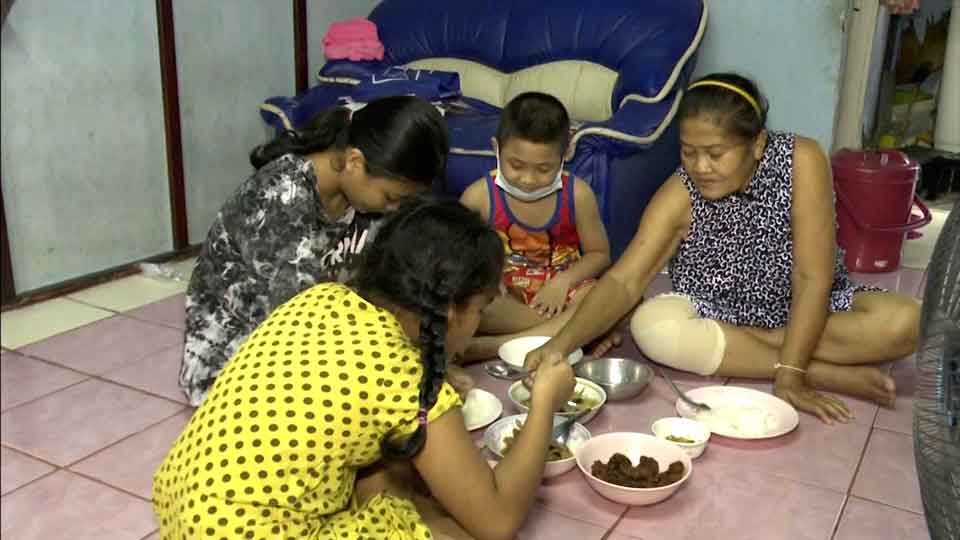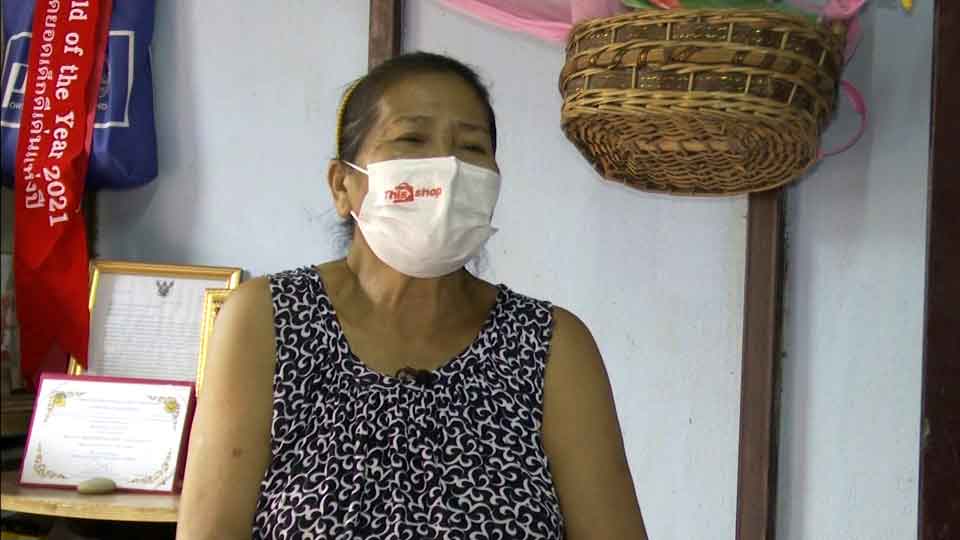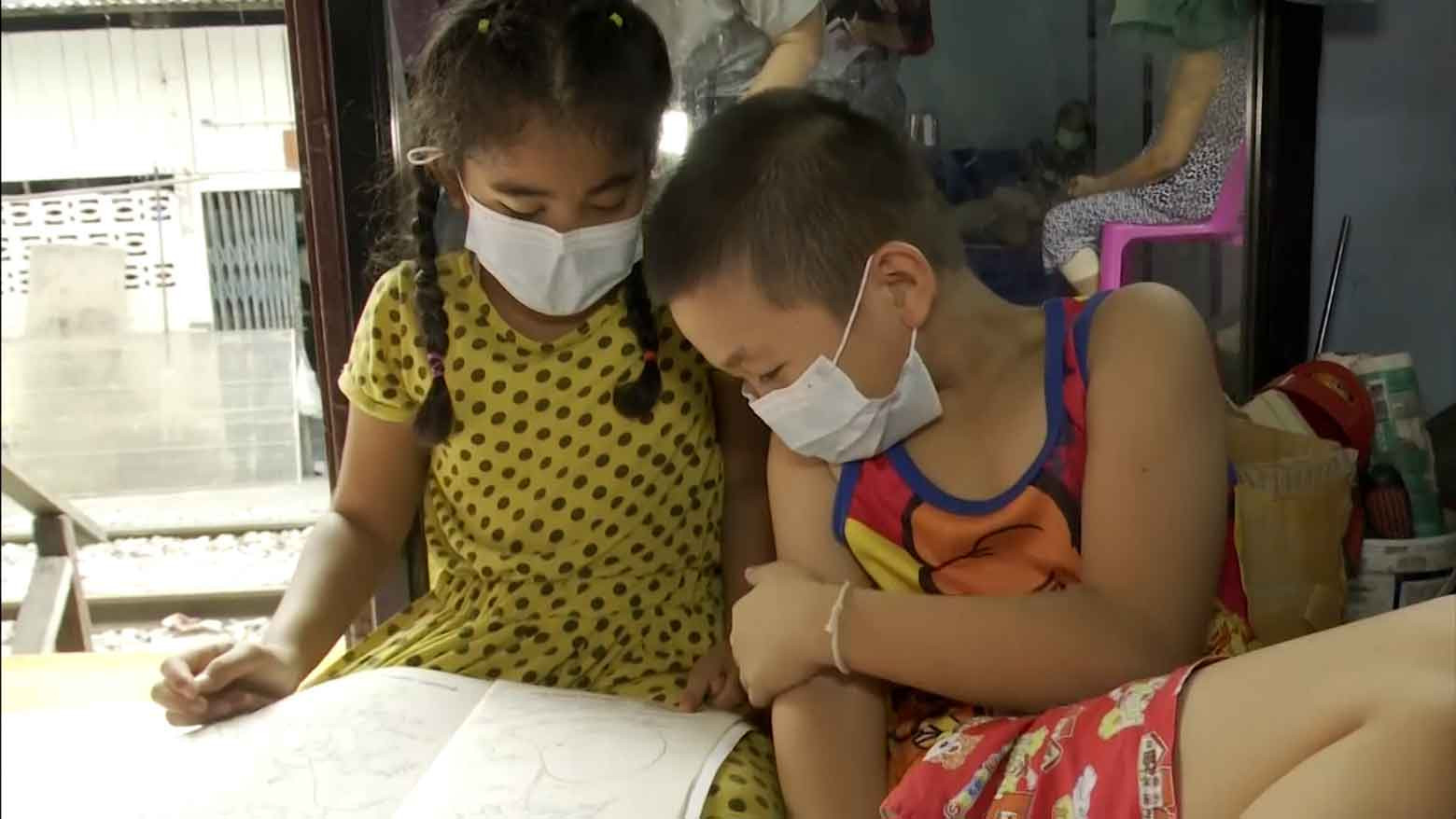Even before the pandemic hit, Chalaem Phromjai struggled to make ends meet. She shared a home in Klong Toey, Bangkok’s largest slum, with her chronically ill husband and three grandchildren. They survived, barely, on her wages from a dishwashing job.
But in early 2021, when a second wave of coronavirus was sweeping through Thailand, Chalaem lost her job and the family was forced to live off her savings.
Then, in July, Chalaem and her husband both contracted the virus. Though she survived, she says her health has never fully recovered. "I get tired easily and my lungs aren't as strong now," she says. Her husband wasn’t as lucky. Chalaem says she lost her soulmate and the one person she could always lean on.
Chalaem spent the remainder of her life savings—$150—on medical bills and other necessities. Now, after many months of unemployment, the 66-year-old is drawing a small income again as a cleaner.

Schooling beyond their means
Chalaem can no longer afford to pay for her grandchildren’s school expenses. Education in Thailand is free in principle, but public schools often charge for additional expenses such as guest teacher fees or cleaning services, and failure to pay can mean not receiving documents that are essential for further education.
Chalaem was worried that her 10-year-old granddaughter Nattakorn—a keen student and aspiring teacher—would be forced to leave school, so she turned to friends and a loan shark for help.
"I had no choice but to borrow money," she says. "If my grandchildren have to drop out, I’ll feel so guilty."

A national problem
Chalaem's story is far from unique. The Equitable Education Fund, a government agency that works to address inequality in the Thai education system, says more than 128,000 students have become poorer as a result of the pandemic, and about 43,000 students dropped out last year.
The EEF’s Somphong Chitradub says the number of dropouts has been rocketing during the pandemic because so many parents have seen their income drop to levels that make education too expensive. "COVID makes it easier for them to decide to drop out," Somphong says.
Somphong says that in his experience, about 60 percent of those who drop out become young delinquents. The rest find only low-skill jobs available to them. He warns that if Thailand doesn’t address this problem, it will become more entrenched and impede Thailand’s development.
The EEF has been trying to help impoverished parents by distributing kits with educational essentials. The organization also grants $90 scholarships to students from low-income families.
Watch video: 03:20
The EEF estimates that its efforts have kept around 14,000 children in school, but acknowledges that these programs fall far short of a solution to the problem. It says the government should make education truly free and ensure that all parents have an income. If they don’t, the result could be lasting damage to the country and a generation of Thais.

